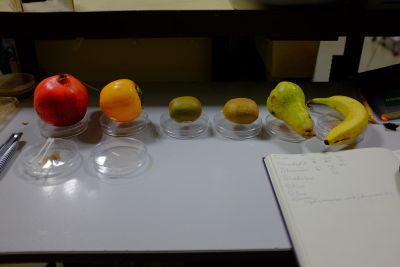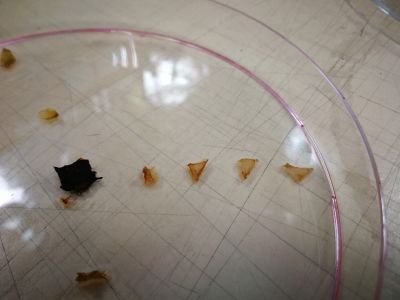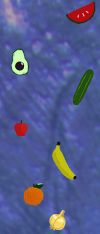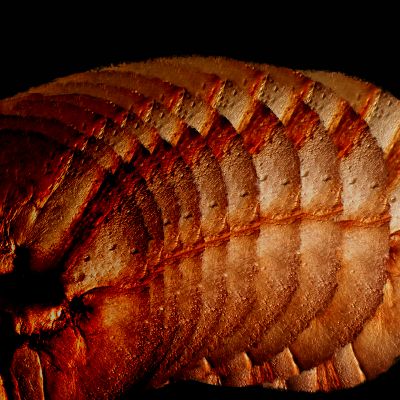The effects of Ethylene Gas on fruits
'One bad apple spoils the bunch' is a saying commonly used to imply that misdemeanants can rub off their negative behaviour onto those nearby. However this is also used in a literal sense in that fruits being close to one another causes faster ripening thus bringing faster rotting. This can come as a result of a spreading fungus of sorts but more interestingly it can be the result of ethylene gas emmisions. Ethylene gas is a hormone produced by fruits (and vegetables) and guides the ripening and rotting of them. The gas is released more and less by certain fruits and certain fruits are more and less sensitive to it. Typically more gas is released more by more ripe/mature fruits.
Ethylene gas is sprayed on fruits to control the maturity of fruits in commercial spaces but cannot be found to order online on mainstream sites from what I've seen. A form of application for the knowledge of fruit-ethylene gas interactions would be a good point to close the topic on.
To raise awareness on fruit storage, to bring tangible evidence of fruit interactions to people and encouraging positive fruit storage habits. Things such as which fruits to keep together and apart for better ripening or longer preservation. This knowledge of organizing fruits (and vegetables) for preferable outcomes seems limited to the dedicated gardening communities by lack of interest elsewhere but could definitely come in handy for more people. I would think that through photographic representation accompanied by short texts of these ethylene fruit interactions the information would catch more interest. For every person who actively preserves their foods better there is one less food item that will be thrown out because it looks a little bit overly-ripe. This could an initiative in the direction of environment preservation.
Another potential use for this curious process could be in the field of education. There is a gap between those who have grown up acknowledging and exploring the many intricate interactions that undeniably exist in natural environments, ethylene gas affecting fruits being one of the many, and those who do not see the necessity to pay attention to the more subtle workings of nature. It can become easy to pick sides in that some people dedicate so much to understanding and caring for processes with a minimal effect on the average human life and will be labelled as pretentious. Whereas some refuse the fact that environments depend on these many intricate and often unnoticeable to the eye interactions, and become ignorant, ostensibly refusing to consider how the eradication of a species in a far away forest matters. One issue in conveying the presence of these natural interactions is that they are difficult to prove in a practical first hand and controlled manner, there is no classroom experiment that shows that ants are a vital part of the rainforest ecosystem. However with ethylene gas fruit interactions one could potentially run a consistent experiment that introduces the concept that even if we can't see or smell the gas between the two fruits it is there causing a visible effect- and help people to develop the understanding that certain interactions are beyond our scope of perception but are still relevant and demanding of our attention.
Slices of pear around a slice of banana peel that were in a petri dish for five days. The banana peel was squeezed and punctured as this is known to increase ethylene gas emmisions. The experiment supports idea that proximity to an ethylene gas source (banana) can accelerate the organic processes of nearby fruits, as well as that the process can be fairly easily recreated.
Credit to this collection of data relating to fruit release rates and sensitivities to ethylene gas that I have used as the foundation for the ethylene segment: https://www.mykitchengarden.info/2016/10/fruits-vegetables-producing-ethylene-or-sensitive.html
To conclude I have made some poster size images expressing aspects of the aforementioned interactions.
A concept 'guide' showing whether these should be stored far from other plants.
Two bananas drawn in a distorted way morphing to avoid touching. Using a texture from a microscope photo of banana peel.
A picture of a banana layered with a darkening effect the closer they get to each other.
Zoomed in picture of the one above.





